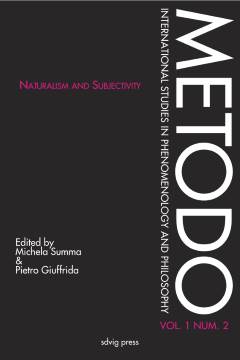Husserls Fundierungsmodell als Grundlage einer intentionalen Wertungsanalyse
pp. 59-82
Abstract
This paper deals with some crucial aspects of the analysis of evaluative acts that can be found, above all, in Husserl’s lectures on ethics and value theory 1908-1914. Both critical responses and constructive interpretations revolve round the notion of foundation which Husserl introduced in his Third and Fifth Logical Investigation (1901). It has been argued that Husserl’s attempts to describe in detail those feelings, volitions and evaluative acts that represent our practical interests (Gemütsintentionalität) entail serious difficulties for his constitution theory. According to one received view, these difficulties trace back to the distinction between objectifying and non-objectifying acts whose interrelatedness Husserl explains in terms of a foundation-relation. Having reconstructed and specified the difficulties at issue as a referential dilemma (allegedly) inherent in evaluative acts, we then show that this dilemma dissolves if the analysis of these acts adheres to the two-stage constitution of value objects. In this respect, the peculiar presence of values at the primary (non-reflective) level can be characterized as an indirect or adverbial reference to values. The paper concludes with two postscripts that shed light on two standard objections against Husserl’s rational approach to value theory. The first one deals with the issue of the fact/value dichotomy and Husserl’s allegedly naïve or dogmatic endorsement of it. The second postscript takes up Scheler’s thesis of a primacy of value-giveness over against the giveness of being. Here, I argue that, contrary to a widespread view, there is no clear-cut and overall incompatibility between Scheler’s thesis and Husserl’s relating views.
Publication details
Published in:
Summa Michela, Giuffrida Pietro (2013) Naturalism and subjectivity. Metodo 1 (2).
Pages: 59-82
Full citation:
Rinofner-Kreidl Sonja (2013) „Husserls Fundierungsmodell als Grundlage einer intentionalen Wertungsanalyse“. Metodo 1 (2), 59–82.


